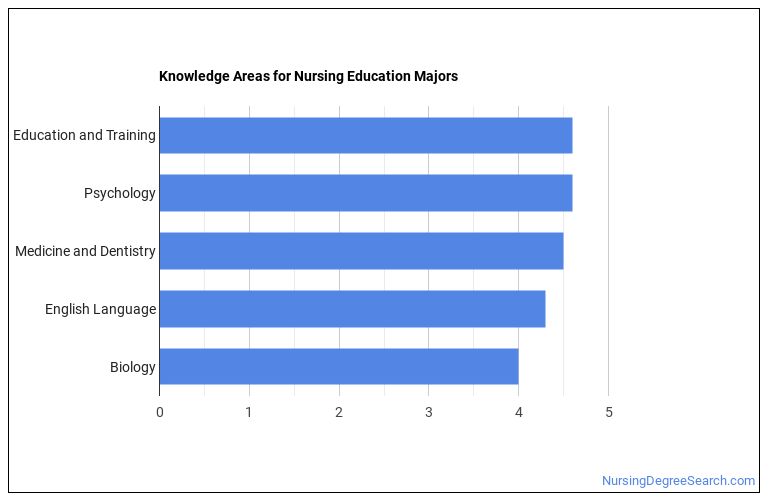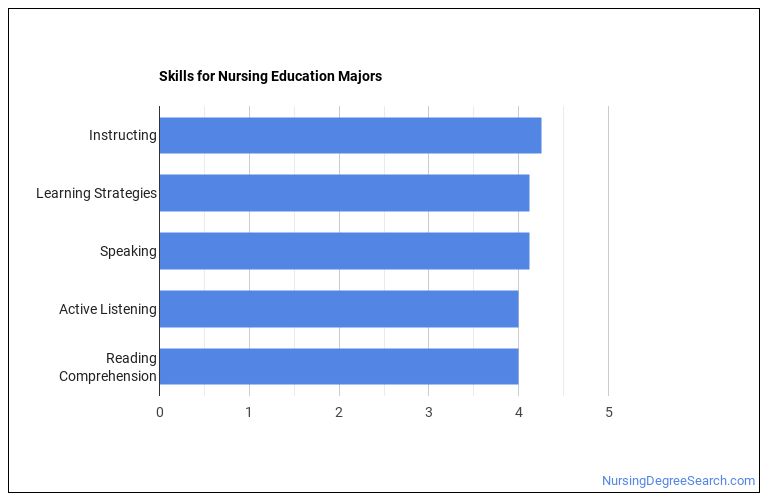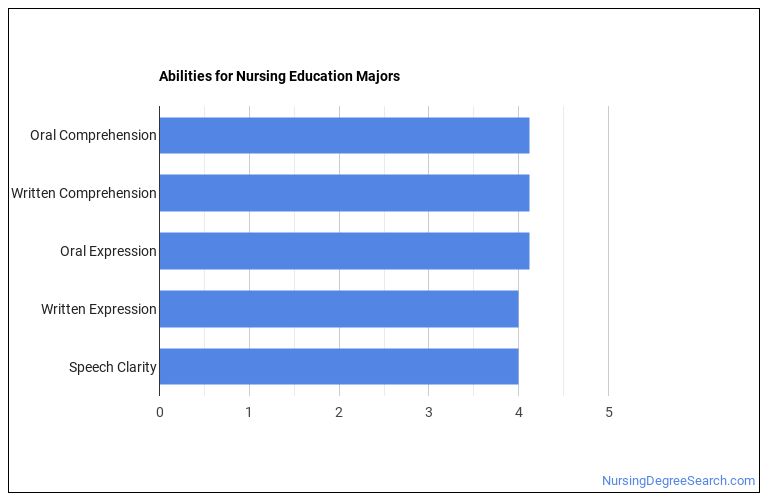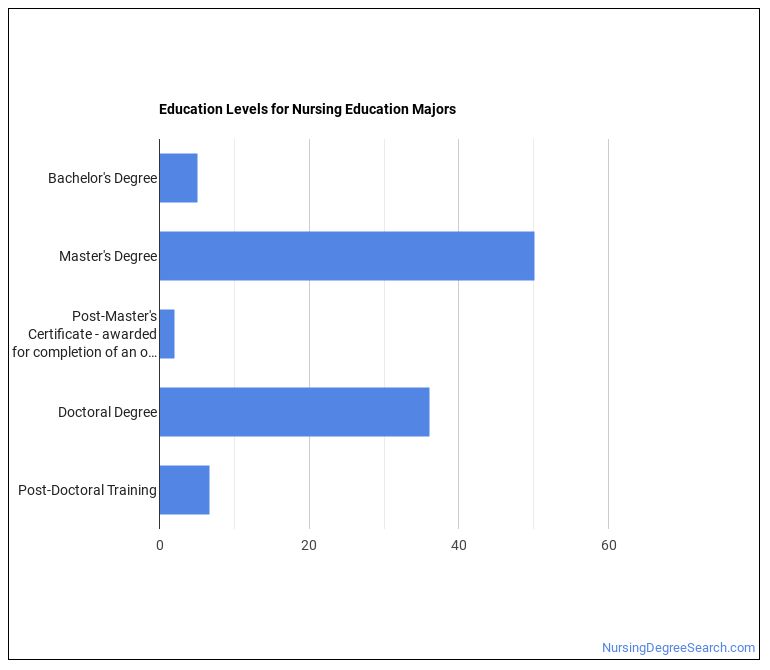Nursing Education
What Nursing Education Majors Need to Know
People with careers related to nursing education were asked what knowledge areas, skills, and abilities were important for their jobs. They weighted these areas on a scale of 1 to 5 with 5 being the highest.
Knowledge Areas for Nursing Education Majors
According to O*NET survey takers, a major in nursing education should prepare you for careers in which you will need to be knowledgeable in the following areas:

- Education and Training - Knowledge of principles and methods for curriculum and training design, teaching and instruction for individuals and groups, and the measurement of training effects.
- Psychology - Knowledge of human behavior and performance; individual differences in ability, personality, and interests; learning and motivation; psychological research methods; and the assessment and treatment of behavioral and affective disorders.
- Medicine and Dentistry - Knowledge of the information and techniques needed to diagnose and treat human injuries, diseases, and deformities. This includes symptoms, treatment alternatives, drug properties and interactions, and preventive health-care measures.
- English Language - Knowledge of the structure and content of the English language including the meaning and spelling of words, rules of composition, and grammar.
- Biology - Knowledge of plant and animal organisms, their tissues, cells, functions, interdependencies, and interactions with each other and the environment.
Skills for Nursing Education Majors
When studying nursing education, you’ll learn many skills that will help you be successful in a wide range of jobs - even those that do not require a degree in the field. The following is a list of some of the most common skills needed for careers associated with this major:

- Instructing - Teaching others how to do something.
- Speaking - Talking to others to convey information effectively.
- Learning Strategies - Selecting and using training/instructional methods and procedures appropriate for the situation when learning or teaching new things.
- Reading Comprehension - Understanding written sentences and paragraphs in work related documents.
- Active Listening - Giving full attention to what other people are saying, taking time to understand the points being made, asking questions as appropriate, and not interrupting at inappropriate times.
Abilities for Nursing Education Majors
As you progress with your nursing education degree, there are several abilities you should pick up that will help you in whatever related career you choose. These abilities include:

- Oral Comprehension - The ability to listen to and understand information and ideas presented through spoken words and sentences.
- Written Comprehension - The ability to read and understand information and ideas presented in writing.
- Oral Expression - The ability to communicate information and ideas in speaking so others will understand.
- Written Expression - The ability to communicate information and ideas in writing so others will understand.
- Speech Clarity - The ability to speak clearly so others can understand you.
What Can You Do With a Nursing Education Major?
Below is a list of occupations associated with nursing education:
| Job Title | Job Growth Rate | Median Salary |
|---|---|---|
| Nursing Instructors and Professors | 24.0% | $73,490 |
Amount of Education Required for Careers Related to Nursing Education
Some careers associated with nursing education require an advanced degree while some may not even require a bachelor’s. In general, the more advanced your degree the more career options will open up to you. However, there is significant time and money that needs to be invested into your education so weigh the pros and cons.
Find out what the typical degree level is for nursing education careers below.

| Education Level | Percentage of Workers |
|---|---|
| Bachelor’s Degree | 5.1% |
| Master’s Degree | 50.1% |
| Post-Master’s Certificate - awarded for completion of an organized program of study; designed for people who have completed a Master’s degree but do not meet the requirements of academic degrees at the doctoral level. | 2.0% |
| Doctoral Degree | 36.1% |
| Post-Doctoral Training | 6.7% |
Explore Major by State
Alabama
California
District of Columbia
Idaho
Kansas
Maryland
Mississippi
Nevada
New York
Oklahoma
South Carolina
Utah
West Virginia
Alaska
Colorado
Florida
Illinois
Kentucky
Massachusetts
Missouri
New Hampshire
North Carolina
Oregon
South Dakota
Vermont
Wisconsin
Majors Related to Nursing Education
You may also be interested in one of the following majors related to nursing education.
References
*The racial-ethnic minorities count is calculated by taking the total number of students and subtracting white students, international students, and students whose race/ethnicity was unknown. This number is then divided by the total number of students at the school to obtain the racial-ethnic minorities percentage.
- College Factual
- College Scorecard
- National Center for Education Statistics
- O*NET Online
- U.S. Bureau of Labor Statistics
- Usual Weekly Earnings of Wage and Salary Workers First Quarter 2020
- Image Credit: By Aleksahgabrielle under License
More about our data sources and methodologies.
